- From the perspective of a woman from Europe
Experiencing Nigeria – More Than Its Reputation Nigeria has a reputation – and yes, part of it is true. But it’s only a part of this diverse country. Over the past six months, I’ve experienced Lagos intensively and learned more about life than I ever could from a travel guide….
- Jollof Rice, Fried Rice & Goat Meat: A Day with Egbe, Catering in Nigeria
Experience a day with Egbe, a Nigerian caterer, preparing Jollof Rice, Fried Rice, and Goat Meat. Discover authentic Nigerian cuisine, outdoor cooking, and everyday culinary craftsmanship.
- Experiencing Nigerian Food: My Adventure with Jollof Rice, Plantain, and Beans
Join me on a culinary journey through Nigeria, tasting Jollof Rice, Plantain, and Beans. A personal experience of authentic flavors, tradition, and vibrant food culture.
- Yam – The African Wonder Tuber & the Recipe for Golden Yam
Discover yam – the African wonder tuber! Includes an easy Golden Yam recipe, vegan, gluten-free, and perfect for African food lovers.
- Beer in Nigeria – Between Tropical Sun, Tradition and Trend
Beer in Nigeria: Discover popular local brews like Star, Gulder & Hero. Learn about taste, prices, culture, and non-alcoholic alternatives like Maltina.
- Keke in Nigeria – The Three-Wheeled Heart of Nigerian Street Traffic
Keke in Nigeria – the iconic three-wheeled taxi shaping urban life. Discover its role, history, colors, and impact on daily transportation.
- Makoko in Lagos: Life on the Water – Between Hardship and Hope
Makoko in Lagos – Nigeria’s floating community. Life on stilts, hope despite poverty, creative solutions. A glimpse behind the scenes.
- Mama Put: Discover Nigeria’s Delicious Street Food Culture
Discover Mama Put, Nigeria’s vibrant street food culture—where hearty meals like Jollof Rice and Pounded Yam meet community, tradition, and unbeatable flavors. A must-try culinary adventure!
- Poverty in Nigeria – and yet so much dignity
Life & work in Nigeria: Poverty, economic reality, harsh labor conditions, unemployment, and everyday dignity. Insights into Africa’s challenges.
- Garri – Production in Nigeria: The Traditional Journey from Cassava to Staple Food
Discover how Garri, a staple food in Nigeria, is made from cassava using traditional methods — from harvesting to roasting — still practiced by rural communities.
- Rainy Season in Nigeria: When Does It Start and End – and How Intense Is It?
When does the rainy season in Nigeria begin? All details on duration, regional differences, and its impact on daily life, infrastructure, health, and farming.
- Why HIFA Is So Close to My Heart – A Personal Encounter from Nigeria
A touching encounter from a Nigerian ghetto – why HIFA means more to me than help. By Ella, in search of meaning, dignity, and hope.
- Mother’s Day: What Every Mother Wishes for Her Child
Mother’s Day is more than just gifts—it’s a day to reflect on every mother’s greatest wish: a safe, happy future for her child. Yet, around the world, mothers fight against poverty, child labor, and lack of education. Learn how you can help.
- Cassava – The Root of Nigerian Cuisine: History, Dishes & Significance
Cassava, also known as manioc, is a staple food in Nigeria. Learn more about its history, cultivation, and popular dishes like Garri, Fufu & Abacha.
- Easter in Nigeria: Colorful Traditions, Deep Faith, and a Comparison with Austria
Discover the unique Easter traditions in Nigeria: vibrant church services, colorful processions, and communal celebrations. Learn how Easter in Nigeria differs from Austrian customs.
- How Donations Change Lives in Nigeria – and Why They Truly Make a Difference
Learn how donations change lives in Nigeria. Sustainable aid through education, clean water, and medical care. Every contribution makes a difference!
- International Women’s Day on March 8: Meaning, Facts, and Women in Nigeria
International Women’s Day on March 8 honors the achievements of women worldwide. How is it celebrated in Nigeria? What challenges and progress exist for women in business, education, and politics? Learn more about initiatives, inspiring women, and the significance of Women’s Day in Nigeria.
- Valentine’s Day in Nigeria: Love, Marriage, and African Traditions
Valentine’s Day Nigeria, love and marriage Africa, Nigerian wedding traditions, romantic customs Nigeria, Valentine’s Day gifts Nigeria, culture and love
- Cows as Life Insurance
Cows in Nigeria symbolize wealth, secure livelihoods, and hold cultural, economic, and social significance.
- Self-Sufficiency in Nigeria: How Agriculture and Livestock Farming Combat Hunger
Self-sufficiency in Nigeria: Learn how sustainable agriculture and education help families fight hunger and poverty.
- Hope Through Support – Insights into HIFA’s Work in Nigeria
Discover how HIFA empowers communities in Nigeria through microfinancing and sustainable projects, providing hope and opportunities for a better future.
- Combating Child Labor in Nigeria: A Fight for the Future of Our Children
Combating Child Labor in Nigeria: A Crucial Step Towards Securing the Future of Our Children. Together Against Poverty and Exploitation.
- A Market Day in Nigeria in January 2024
The photo series ‘Market Day in Nigeria’ shows the lively hustle and bustle at a typical weekly market in January 2024 and conveys an authentic impression of cultural diversity.
- The fascinating wildlife of Nigeria compared to Namibia: Safari adventures and wildlife experiences
Nigeria’s wildlife: Rainforests and savannas are home to species like the West African lion. Namibia: Deserts provide habitat for lions and giraffes.
- Nigeria – Discovering Culinary Diversity
Discover Nigeria’s culinary diversity: From spicy spices to hearty soups, Nigerian cuisine offers a flavor explosion for food enthusiasts.
- Diseases in Nigeria: Challenges and Hope
Diseases in Nigeria: A compassionate look at malaria, HIV/AIDS, and yellow fever. Progress through education, vaccinations, and international collaboration. Hope for improved healthcare and the future.
- The importance of music and dance in Nigeria: from Afrobeat to traditional rhythms
Immerse yourself in Nigeria’s fascinating culture: From captivating music to vibrant traditions – experience the diversity of Nigerian life.
- Photo Series: Palm Oil Production – A Look at Agricultural Practices in Nigeria, Africa
Discover in this captivating photo series the production of palm oil and agricultural practices in Nigeria, Africa. Immerse yourself in the traditional methods and the daily lives of the farmers.
- The production of palm oil in Nigeria – focus on knowledge and production
Nigeria’s palm oil production: traditional vs. modern methods, local economy, environmental impact & conscious consumption for sustainable solutions.
- The importance of mothers in Nigeria and how Mother’s Day is celebrated
In Nigeria, mothers have an important role in family life. Mothering Day is celebrated on the fourth Sunday in Lent and is often celebrated with gifts, flowers and a special meal. Although Mothering Day is a Western holiday, it is celebrated in Nigeria as it is in England and can also coincide with International Women’s Day on 8 March.
- A brief History of Palm Oil – discovering its Roots and using it today
Discover the history of palm oil, a versatile oil originating in Africa. Today controversial due to environmental impacts & health concerns. Sustainable alternatives are important.
- The Feast of St Joseph: An Occasion to honour Men and Fathers
The Feast of St Joseph honours men and fathers every year on 19 March. It is an opportunity to acknowledge and celebrate their important role in society. In Nigeria, special meals are prepared and gifts exchanged to recognise the importance of fathers and male role models.
- May Day in Nigeria: history, significance and celebrations
May Day is an important holiday in Nigeria that highlights the rights and importance of workers in society. The history of the holiday dates back to the late 19th century when Nigerian workers organised themselves to press for their demands. May Day celebrations include parades, rallies and other events that honour the importance of labour and workers. The holiday is also a day of solidarity and unity, showing the importance of cooperation and solidarity in the world of work. Michael Imoudu was one of the founding fathers of the Nigerian labour movement and worked tirelessly for workers’ rights.
- Grasscutters in Nigeria – What You Should Know About These Fascinating Animals!
Grasscutters are rodents in Nigeria that play an important role in culture and economy. They have high reproduction rates, are adaptable, and are often kept as pets. Breeding is promoted to improve self-sufficiency and the economy in rural areas.
- The city of Calabar in Nigeria, Africa
The text provides information about Project Calabar, a training center located in Calabar, Nigeria. The center is situated on the grounds of St. Patrick’s College, which was founded by Irish missionaries. In addition to a kindergarten and primary school directly run by the missionaries, there is also a high school with a boarding school operated by the Archdiocese of Calabar. The Skill Acquisition Center (SAC), a vocational training center supervised by HIFA, is located on the high school campus.
- Funerals in Nigeria – Did you know…?
Funerals in Nigeria – celebrated and taken as seriously as weddings?! The death of the beloved Chief Adolf Paster is an opportunity to reflect on how Africans deal with the loss of a loved one. For most Africans, death is just a transition. The deceased will continue to live with the family, albeit in a different, spiritual state, along with the ancestors who have gone before. In Nigeria, a funeral becomes a multi-day celebration attended by all relatives and acquaintances. The festival includes not only mourning for the loss of a loved one and bidding farewell to the deceased but also the joy shared with them over a new life with God. If the family can afford it, these festivities can last several days and include good food, dance, and entertainment.
- Easter in Nigeria
For the estimated 78 million Christians in Nigeria, Easter has a special meaning without gifts. Traditions like the Easter Bunny or egg hunt don’t play a role. People identify with Jesus and his suffering and hope to be redeemed. The celebration of Palm Sunday begins with a 4-5 hour Mass and is accompanied by processions where participants sing and dance with palm fronds.
- Why the End-SARS Movement Still Represents a Sign of Hope
The #EndSARS movement is a historic event in Nigeria. Young people are resisting corruption and oppression in an inspiring way. The movement has brought national unity and gained international support. The Catholic Church is calling for dialogue. The protesters demand the immediate release of detained demonstrators, compensation for victims of the SARS unit, an independent commission to investigate and prosecute crimes committed by the unit, psychological evaluation and retraining of the unit, and better pay for Nigerian police officers. The implementation of these demands remains to be seen.
- Social media – the most important tool of the Nigerian youth at the moment
Social media is the most important tool for Nigerian youth to fight for a better and more just life. The #EndSARS protest started as a Twitter campaign and led to protests against police brutality and corruption throughout the country. Despite the lack of a formal leadership structure, young activists used social media to raise their voice and fight for their cause. Although most protests were peaceful, there were also violent attacks, including the use of military forces against demonstrators in Lekki-Lagos.
- What is behind the “End-SARS” movement?
The #EndSARS protest calls for the dissolution of the notorious SARS police unit in Nigeria. SARS is notorious for abuses and crimes against citizens and has become a target of protests.
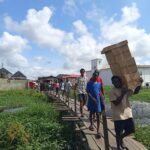 Experiencing Nigeria – More Than Its Reputation Nigeria has a reputation – and yes, part of it is true. But it’s only a part of this diverse country. Over the past six months, I’ve experienced Lagos intensively and learned more about life than I ever could from a travel guide….
Experiencing Nigeria – More Than Its Reputation Nigeria has a reputation – and yes, part of it is true. But it’s only a part of this diverse country. Over the past six months, I’ve experienced Lagos intensively and learned more about life than I ever could from a travel guide….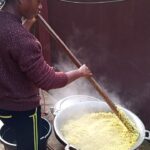 Experience a day with Egbe, a Nigerian caterer, preparing Jollof Rice, Fried Rice, and Goat Meat. Discover authentic Nigerian cuisine, outdoor cooking, and everyday culinary craftsmanship.
Experience a day with Egbe, a Nigerian caterer, preparing Jollof Rice, Fried Rice, and Goat Meat. Discover authentic Nigerian cuisine, outdoor cooking, and everyday culinary craftsmanship. Discover yam – the African wonder tuber! Includes an easy Golden Yam recipe, vegan, gluten-free, and perfect for African food lovers.
Discover yam – the African wonder tuber! Includes an easy Golden Yam recipe, vegan, gluten-free, and perfect for African food lovers. Beer in Nigeria: Discover popular local brews like Star, Gulder & Hero. Learn about taste, prices, culture, and non-alcoholic alternatives like Maltina.
Beer in Nigeria: Discover popular local brews like Star, Gulder & Hero. Learn about taste, prices, culture, and non-alcoholic alternatives like Maltina. Keke in Nigeria – the iconic three-wheeled taxi shaping urban life. Discover its role, history, colors, and impact on daily transportation.
Keke in Nigeria – the iconic three-wheeled taxi shaping urban life. Discover its role, history, colors, and impact on daily transportation. Makoko in Lagos – Nigeria’s floating community. Life on stilts, hope despite poverty, creative solutions. A glimpse behind the scenes.
Makoko in Lagos – Nigeria’s floating community. Life on stilts, hope despite poverty, creative solutions. A glimpse behind the scenes.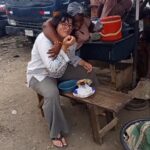 Discover Mama Put, Nigeria’s vibrant street food culture—where hearty meals like Jollof Rice and Pounded Yam meet community, tradition, and unbeatable flavors. A must-try culinary adventure!
Discover Mama Put, Nigeria’s vibrant street food culture—where hearty meals like Jollof Rice and Pounded Yam meet community, tradition, and unbeatable flavors. A must-try culinary adventure! Life & work in Nigeria: Poverty, economic reality, harsh labor conditions, unemployment, and everyday dignity. Insights into Africa’s challenges.
Life & work in Nigeria: Poverty, economic reality, harsh labor conditions, unemployment, and everyday dignity. Insights into Africa’s challenges. Discover how Garri, a staple food in Nigeria, is made from cassava using traditional methods — from harvesting to roasting — still practiced by rural communities.
Discover how Garri, a staple food in Nigeria, is made from cassava using traditional methods — from harvesting to roasting — still practiced by rural communities. When does the rainy season in Nigeria begin? All details on duration, regional differences, and its impact on daily life, infrastructure, health, and farming.
When does the rainy season in Nigeria begin? All details on duration, regional differences, and its impact on daily life, infrastructure, health, and farming. A touching encounter from a Nigerian ghetto – why HIFA means more to me than help. By Ella, in search of meaning, dignity, and hope.
A touching encounter from a Nigerian ghetto – why HIFA means more to me than help. By Ella, in search of meaning, dignity, and hope. Mother’s Day is more than just gifts—it’s a day to reflect on every mother’s greatest wish: a safe, happy future for her child. Yet, around the world, mothers fight against poverty, child labor, and lack of education. Learn how you can help.
Mother’s Day is more than just gifts—it’s a day to reflect on every mother’s greatest wish: a safe, happy future for her child. Yet, around the world, mothers fight against poverty, child labor, and lack of education. Learn how you can help. Cassava, also known as manioc, is a staple food in Nigeria. Learn more about its history, cultivation, and popular dishes like Garri, Fufu & Abacha.
Cassava, also known as manioc, is a staple food in Nigeria. Learn more about its history, cultivation, and popular dishes like Garri, Fufu & Abacha.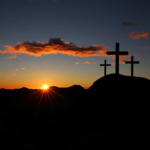 Discover the unique Easter traditions in Nigeria: vibrant church services, colorful processions, and communal celebrations. Learn how Easter in Nigeria differs from Austrian customs.
Discover the unique Easter traditions in Nigeria: vibrant church services, colorful processions, and communal celebrations. Learn how Easter in Nigeria differs from Austrian customs. Learn how donations change lives in Nigeria. Sustainable aid through education, clean water, and medical care. Every contribution makes a difference!
Learn how donations change lives in Nigeria. Sustainable aid through education, clean water, and medical care. Every contribution makes a difference!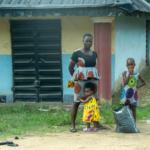 International Women’s Day on March 8 honors the achievements of women worldwide. How is it celebrated in Nigeria? What challenges and progress exist for women in business, education, and politics? Learn more about initiatives, inspiring women, and the significance of Women’s Day in Nigeria.
International Women’s Day on March 8 honors the achievements of women worldwide. How is it celebrated in Nigeria? What challenges and progress exist for women in business, education, and politics? Learn more about initiatives, inspiring women, and the significance of Women’s Day in Nigeria. Valentine’s Day Nigeria, love and marriage Africa, Nigerian wedding traditions, romantic customs Nigeria, Valentine’s Day gifts Nigeria, culture and love
Valentine’s Day Nigeria, love and marriage Africa, Nigerian wedding traditions, romantic customs Nigeria, Valentine’s Day gifts Nigeria, culture and love Cows in Nigeria symbolize wealth, secure livelihoods, and hold cultural, economic, and social significance.
Cows in Nigeria symbolize wealth, secure livelihoods, and hold cultural, economic, and social significance. Self-sufficiency in Nigeria: Learn how sustainable agriculture and education help families fight hunger and poverty.
Self-sufficiency in Nigeria: Learn how sustainable agriculture and education help families fight hunger and poverty. Discover how HIFA empowers communities in Nigeria through microfinancing and sustainable projects, providing hope and opportunities for a better future.
Discover how HIFA empowers communities in Nigeria through microfinancing and sustainable projects, providing hope and opportunities for a better future. Combating Child Labor in Nigeria: A Crucial Step Towards Securing the Future of Our Children. Together Against Poverty and Exploitation.
Combating Child Labor in Nigeria: A Crucial Step Towards Securing the Future of Our Children. Together Against Poverty and Exploitation.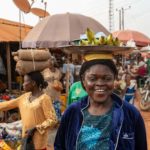 The photo series ‘Market Day in Nigeria’ shows the lively hustle and bustle at a typical weekly market in January 2024 and conveys an authentic impression of cultural diversity.
The photo series ‘Market Day in Nigeria’ shows the lively hustle and bustle at a typical weekly market in January 2024 and conveys an authentic impression of cultural diversity. Nigeria’s wildlife: Rainforests and savannas are home to species like the West African lion. Namibia: Deserts provide habitat for lions and giraffes.
Nigeria’s wildlife: Rainforests and savannas are home to species like the West African lion. Namibia: Deserts provide habitat for lions and giraffes. Discover Nigeria’s culinary diversity: From spicy spices to hearty soups, Nigerian cuisine offers a flavor explosion for food enthusiasts.
Discover Nigeria’s culinary diversity: From spicy spices to hearty soups, Nigerian cuisine offers a flavor explosion for food enthusiasts.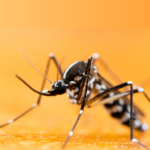 Diseases in Nigeria: A compassionate look at malaria, HIV/AIDS, and yellow fever. Progress through education, vaccinations, and international collaboration. Hope for improved healthcare and the future.
Diseases in Nigeria: A compassionate look at malaria, HIV/AIDS, and yellow fever. Progress through education, vaccinations, and international collaboration. Hope for improved healthcare and the future. Immerse yourself in Nigeria’s fascinating culture: From captivating music to vibrant traditions – experience the diversity of Nigerian life.
Immerse yourself in Nigeria’s fascinating culture: From captivating music to vibrant traditions – experience the diversity of Nigerian life. Discover in this captivating photo series the production of palm oil and agricultural practices in Nigeria, Africa. Immerse yourself in the traditional methods and the daily lives of the farmers.
Discover in this captivating photo series the production of palm oil and agricultural practices in Nigeria, Africa. Immerse yourself in the traditional methods and the daily lives of the farmers. Nigeria’s palm oil production: traditional vs. modern methods, local economy, environmental impact & conscious consumption for sustainable solutions.
Nigeria’s palm oil production: traditional vs. modern methods, local economy, environmental impact & conscious consumption for sustainable solutions.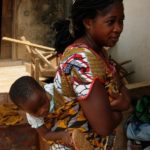 In Nigeria, mothers have an important role in family life. Mothering Day is celebrated on the fourth Sunday in Lent and is often celebrated with gifts, flowers and a special meal. Although Mothering Day is a Western holiday, it is celebrated in Nigeria as it is in England and can also coincide with International Women’s Day on 8 March.
In Nigeria, mothers have an important role in family life. Mothering Day is celebrated on the fourth Sunday in Lent and is often celebrated with gifts, flowers and a special meal. Although Mothering Day is a Western holiday, it is celebrated in Nigeria as it is in England and can also coincide with International Women’s Day on 8 March. Discover the history of palm oil, a versatile oil originating in Africa. Today controversial due to environmental impacts & health concerns. Sustainable alternatives are important.
Discover the history of palm oil, a versatile oil originating in Africa. Today controversial due to environmental impacts & health concerns. Sustainable alternatives are important. The Feast of St Joseph honours men and fathers every year on 19 March. It is an opportunity to acknowledge and celebrate their important role in society. In Nigeria, special meals are prepared and gifts exchanged to recognise the importance of fathers and male role models.
The Feast of St Joseph honours men and fathers every year on 19 March. It is an opportunity to acknowledge and celebrate their important role in society. In Nigeria, special meals are prepared and gifts exchanged to recognise the importance of fathers and male role models. May Day is an important holiday in Nigeria that highlights the rights and importance of workers in society. The history of the holiday dates back to the late 19th century when Nigerian workers organised themselves to press for their demands. May Day celebrations include parades, rallies and other events that honour the importance of labour and workers. The holiday is also a day of solidarity and unity, showing the importance of cooperation and solidarity in the world of work. Michael Imoudu was one of the founding fathers of the Nigerian labour movement and worked tirelessly for workers’ rights.
May Day is an important holiday in Nigeria that highlights the rights and importance of workers in society. The history of the holiday dates back to the late 19th century when Nigerian workers organised themselves to press for their demands. May Day celebrations include parades, rallies and other events that honour the importance of labour and workers. The holiday is also a day of solidarity and unity, showing the importance of cooperation and solidarity in the world of work. Michael Imoudu was one of the founding fathers of the Nigerian labour movement and worked tirelessly for workers’ rights. Grasscutters are rodents in Nigeria that play an important role in culture and economy. They have high reproduction rates, are adaptable, and are often kept as pets. Breeding is promoted to improve self-sufficiency and the economy in rural areas.
Grasscutters are rodents in Nigeria that play an important role in culture and economy. They have high reproduction rates, are adaptable, and are often kept as pets. Breeding is promoted to improve self-sufficiency and the economy in rural areas.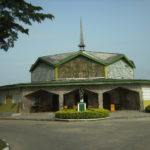 The text provides information about Project Calabar, a training center located in Calabar, Nigeria. The center is situated on the grounds of St. Patrick’s College, which was founded by Irish missionaries. In addition to a kindergarten and primary school directly run by the missionaries, there is also a high school with a boarding school operated by the Archdiocese of Calabar. The Skill Acquisition Center (SAC), a vocational training center supervised by HIFA, is located on the high school campus.
The text provides information about Project Calabar, a training center located in Calabar, Nigeria. The center is situated on the grounds of St. Patrick’s College, which was founded by Irish missionaries. In addition to a kindergarten and primary school directly run by the missionaries, there is also a high school with a boarding school operated by the Archdiocese of Calabar. The Skill Acquisition Center (SAC), a vocational training center supervised by HIFA, is located on the high school campus. Funerals in Nigeria – celebrated and taken as seriously as weddings?! The death of the beloved Chief Adolf Paster is an opportunity to reflect on how Africans deal with the loss of a loved one. For most Africans, death is just a transition. The deceased will continue to live with the family, albeit in a different, spiritual state, along with the ancestors who have gone before. In Nigeria, a funeral becomes a multi-day celebration attended by all relatives and acquaintances. The festival includes not only mourning for the loss of a loved one and bidding farewell to the deceased but also the joy shared with them over a new life with God. If the family can afford it, these festivities can last several days and include good food, dance, and entertainment.
Funerals in Nigeria – celebrated and taken as seriously as weddings?! The death of the beloved Chief Adolf Paster is an opportunity to reflect on how Africans deal with the loss of a loved one. For most Africans, death is just a transition. The deceased will continue to live with the family, albeit in a different, spiritual state, along with the ancestors who have gone before. In Nigeria, a funeral becomes a multi-day celebration attended by all relatives and acquaintances. The festival includes not only mourning for the loss of a loved one and bidding farewell to the deceased but also the joy shared with them over a new life with God. If the family can afford it, these festivities can last several days and include good food, dance, and entertainment. For the estimated 78 million Christians in Nigeria, Easter has a special meaning without gifts. Traditions like the Easter Bunny or egg hunt don’t play a role. People identify with Jesus and his suffering and hope to be redeemed. The celebration of Palm Sunday begins with a 4-5 hour Mass and is accompanied by processions where participants sing and dance with palm fronds.
For the estimated 78 million Christians in Nigeria, Easter has a special meaning without gifts. Traditions like the Easter Bunny or egg hunt don’t play a role. People identify with Jesus and his suffering and hope to be redeemed. The celebration of Palm Sunday begins with a 4-5 hour Mass and is accompanied by processions where participants sing and dance with palm fronds. The #EndSARS movement is a historic event in Nigeria. Young people are resisting corruption and oppression in an inspiring way. The movement has brought national unity and gained international support. The Catholic Church is calling for dialogue. The protesters demand the immediate release of detained demonstrators, compensation for victims of the SARS unit, an independent commission to investigate and prosecute crimes committed by the unit, psychological evaluation and retraining of the unit, and better pay for Nigerian police officers. The implementation of these demands remains to be seen.
The #EndSARS movement is a historic event in Nigeria. Young people are resisting corruption and oppression in an inspiring way. The movement has brought national unity and gained international support. The Catholic Church is calling for dialogue. The protesters demand the immediate release of detained demonstrators, compensation for victims of the SARS unit, an independent commission to investigate and prosecute crimes committed by the unit, psychological evaluation and retraining of the unit, and better pay for Nigerian police officers. The implementation of these demands remains to be seen.